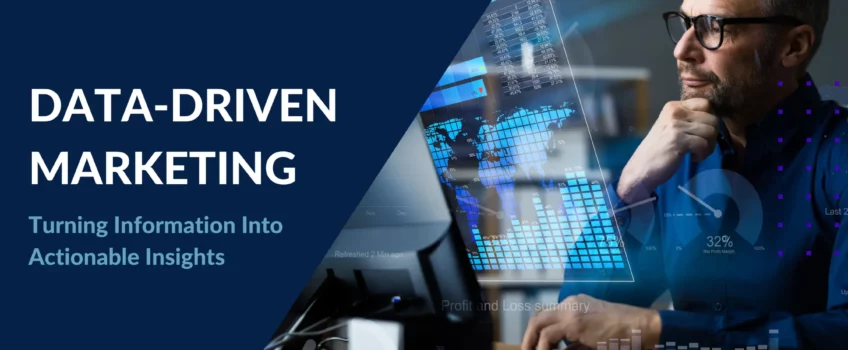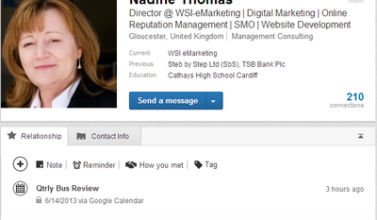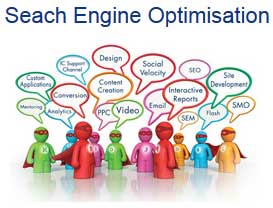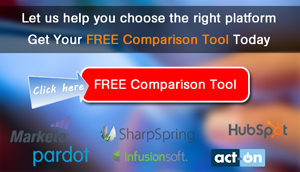
The digital era has brought about a sea of data for businesses to navigate. However, many struggle to make sense of this information, let alone turn it into a competitive edge. That’s where data-driven marketing comes in. By translating complex data into actionable insights, data-driven marketing empowers businesses to make informed decisions that fuel growth and customer satisfaction. In this article, we will explore the intricate world of data-driven marketing, showing you how to transform raw data into results-driven strategies.
Understanding the Power of Data-Driven Marketing
Gone are the days of blindly throwing money at advertising campaigns in hopes of reaching the right audience. Data-driven marketing has transformed the way businesses approach marketing by providing a deeper understanding of their customers and their behaviours.
By analysing data from various sources, your company can create highly targeted and personalised campaigns that resonate with your audience. The ability to measure and analyse the effectiveness of these campaigns is also crucial in optimising your marketing efforts. This approach will also uncover new opportunities and trends that your business can capitalise on.
However, implementing a data-driven marketing strategy requires a robust technological infrastructure and skilled personnel to extract relevant insights. Without proper execution, data remains just data. By embracing data-driven marketing strategies, your company can revolutionise business growth and stay ahead of your competition.
How Leveraging Data Can Drive Marketing Success
Data is the lifeblood of modern marketing. By leveraging data effectively, your business can achieve its marketing goals and stay competitive in a rapidly evolving market. Here are some key ways data can be used to drive marketing success:
- Targeted Marketing Campaigns: Analysing customer data enables you to create highly targeted marketing campaigns that resonate with your target audience, increasing the effectiveness of your messaging and driving better results.
- Improved Customer Insights: Data provides valuable insights into customer behaviour, preferences, and needs, allowing you to develop strategies that enhance customer satisfaction and loyalty. This helps in providing personalised experiences and services to your customers.
- Enhanced Personalisation: Personalisation is key in creating memorable customer experiences. By using customer data to personalise content, recommendations, and offers, your business can increase engagement and improve customer lifetime value.
- Data-Driven Decision Making: Data empowers marketers to make informed decisions based on key metrics and performance indicators, optimising marketing strategies and tactics for maximum impact and results.
- Optimised Marketing Budget Allocation: Analysing data on customer acquisition costs, conversion rates, and customer lifetime value helps your business better allocate marketing resources to channels that deliver the highest ROI.
- Improved Customer Experience: By analysing customer data, your business can identify pain points and opportunities for improvement, enhancing the customer experience throughout the entire buyer’s journey.
- Competitive Advantage: Harnessing data-driven insights allows your business to stay ahead of your competitors and capitalise on emerging trends and opportunities.
- Continuous Optimisation and Innovation: By monitoring and analysing data, you can identify areas for improvement, test new strategies, and iterate based on data-driven insights, driving continuous optimisation and innovation.
By utilising data effectively, your business can unlock the full potential of your marketing efforts and achieve marketing success. Embracing a data-driven approach is essential in today’s competitive marketplace, where insights and personalisation are critical in building lasting customer relationships.

8 Essential Components of a Successful Data-Driven Marketing Campaign
Building a successful data-driven marketing campaign requires careful planning, execution, and continuous optimisation. Here are some essential components that can help your business maximise the effectiveness of your data-driven marketing efforts:
1. Data Collection and Integration
The starting point for data-driven marketing campaigns is robust data collection from various sources such as website analytics, social media engagement, and CRM systems. Integrating these data sources provides a unified view of your customer, which is crucial in creating targeted and personalised marketing messages.
2. Data-Driven Marketing: Analysis and Insights
Data analysts play a critical role in identifying actionable insights that drive marketing strategies and tactics. They use analytics techniques to analyse large amounts of data and extract meaning from it.
3. Customer Segmentation
Dividing customers into distinct groups based on characteristics such as demographics, behaviour, and preferences allows your business to create targeted and personalised marketing messages.
Also Read: Creating Buyer Personas From Real Data
4. Personalisation and Targeting
Leveraging customer data enables your business to deliver personalised experiences, increasing the relevance and effectiveness of their marketing efforts. By providing tailored offers, content, and recommendations, you can improve engagement with your target audience and boost customer loyalty.
5. A/B Testing and Experimentation
Testing specific elements like headlines, visuals, CTAs, or targeting strategies allows your business to refine your marketing messages and improve campaign performance over time.
6. Marketing Automation
Marketing automation tools can automate tasks like email campaigns, social media posting, and lead generation, allowing marketers to focus on strategy and analysis.
Recommended: Better Data Management Means Better Marketing Automation ROI
7. Measurement and Optimisation of Data-Driven Marketing
Measuring KPIs like conversion rates, customer acquisition costs, and customer lifetime value helps assess the impact of data-driven marketing efforts. Continuously optimising campaigns based on these metrics helps improve results and maximise ROI.
8. Compliance and Data Privacy
Brands must ensure compliance with data privacy regulations and protect customers’ information to avoid alienation and build trust. By integrating these essential components, your business can develop data-driven marketing campaigns that resonate with your customers and yield measurable results.
The Future of Marketing: A Data-Driven Perspective
The future of marketing lies in data-driven practices that leverage technology and customer insights to deliver personalised experiences and drive business growth. Here are some key trends that will shape the future of data-driven marketing:
- Hyper-personalisation will reach new heights with access to vast amounts of customer data across channels.
- Holistic customer journey orchestration will focus on understanding the end-to-end customer journey and delivering consistent experiences across touch points.
- Predictive and prescriptive analytics will become more prevalent, using historical data and machine learning models for forecasting and optimisation.
- Artificial intelligence and automation will revolutionise data-driven marketing, providing real-time insights and streamlining repetitive tasks.
- Ethical data practices will be essential, prioritising transparent data collection, consent, and security.
- Integration of offline and online data will create a unified view of the customer.
- Data visualisation and storytelling will play a significant role in simplifying complex data sets and conveying information effectively.
By embracing these trends, your business can unlock the full potential of your marketing efforts and stay ahead of your competition in a rapidly evolving market.
Data-Driven Marketing with WSI-eMarketing
Data-driven practices have become a game-changer for businesses of all sizes. By leveraging the power of data, you can gain valuable insights into your customers, optimise your marketing strategies, and drive business growth. Data-driven marketing enables targeted campaigns, personalised experiences, and agile decision-making, all of which contribute to increased customer acquisition, retention, and satisfaction.
At WSI-eMarketing, we understand that navigating the ever-changing marketing landscape can be a daunting task. If you’re feeling overwhelmed and need assistance, we’re here to help. Whether you have questions or want to learn more about how we can support your digital marketing strategy, please don’t hesitate to contact us. Our team is always ready to offer guidance and help you achieve marketing success.
Related Post
Content Sharing Via Social...
Target marketing to meet your business goals Is your business using social media channels...
- June 15, 2011
- By Nadine Thomas
- Digital Marketing
Can you get help to fund your...
If you need a new website, it’s possible that you could get help towards the cost....
- May 30, 2013
- By Rob Thomas
- Digital Marketing
10 Best Ways to take...
Others may have seen a pop-up ‘invitation to upgrade’ message when they accessed...
- June 1, 2013
- By Rob Thomas
- Digital Marketing
Google Hangouts – 6 Ways...
Google+ was launched just 2 years ago in June 2011. In the first 6 months of its...
- June 24, 2013
- By Nadine Thomas
- Digital Marketing
6 top tips on how to get the...
In Europe alone there are 243.2 million Facebook subscribers (internetworldstats, 2012)....
- July 3, 2013
- By Nadine Thomas
- Digital Marketing
What is SEO?
SEO or Search Engine Optimisation to give it its full name is the process that helps your...
- July 29, 2013
- By Nadine Thomas
- Digital Marketing











Leave a Comments